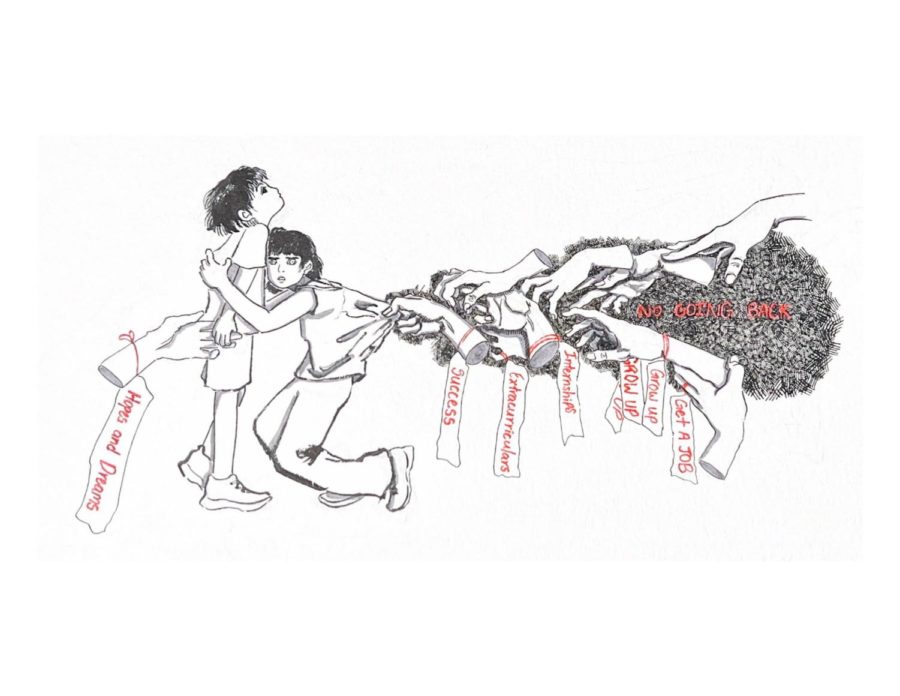We Middle Easterners take our food seriously—perhaps too seriously. Refusing to eat my mother’s Persian dishes is tantamount to spitting in her face; learning how to make the perfect chai is a rite of passage in my household. Indeed, it is nothing new that food brings people together or tears us apart.
In the Middle Ages, Christian societies singled out and alienated Jews for not eating pork, when in fact this originally was not a distinctly Jewish custom. Back in the ancient Near East, the Israelites shared the custom with the Egyptians and other Semitic peoples. Later, when Jews traveled from Middle Eastern countries to Spain, they brought the eggplant with them, and were singled out again, this time as eggplant eaters. By the 17th century the eggplant was dubbed the “Jew’s apple” in England, as it was adored by Spanish Jews who brought it with them after their expulsion from Spain.
We all know of the everlasting Israeli-Arab conflict, but recently the quarrel has expanded to a food fight over claims of ownership of regional dishes.
A few weeks ago, University of Chicago Friends of Israel (UCFI) hosted an Israel Independence Day celebration on Bartlett quad featuring falafel, hummus, Hebrew music, and free henna tattoos. Where UCFI was, Students for Justice in Palestine (SJP) followed, protesting the celebration. The demonstration didn’t bother me. In fact, I was happy to hear their side of the story, their activist fervor, and a healthy exercise of free speech.
But two days later, an article titled “U of Chicago Students Protest Cultural Appropriation, Misinformation at Israel Independence Day Event” was published on the site Sixteen Minutes to Palestine, containing the following passage:
“Students on campus found the appropriation of Arab and Palestinian products and cultural elements to be offensive. The event presented falafel as an Israeli dish, improperly attributed the art of henna to Israel, and even featured a taxidermied camel. SJP members and others expressed concern over the blatant orientalization and distortion of Palestinian culture meant to energize these kinds of events.”
Followed by the pièce de résistance:
“For what it’s worth, this is not the first time pro-Israel student groups have fetishized camels as part of their celebrations.”
This isn’t the first time Israel and Jews have been accused of “hummus-washing”—theft of Palestinian culture. Such carping would be amusing here if it didn’t contradict the fact that Middle Eastern Jews have always eaten falafel and hummus. In the wake of the founding of the State of Israel, Jews of Arab nations were quickly targeted for revenge. Thus seeking refuge, most of these ancient communities in Libya, Syria, Egypt, Yemen, and Iraq fled to Israel, bringing their culinary traditions with them—including scrumptious falafel recipes.
Just last month, Forbes published the Middle East version of the “McDonalds index”—“The Falafel Index”—to assess purchasing power in the Middle East. There, the falafel—as opposed to the Big Mac—is the quotidian dish you’ll find on the street. Included with Palestine and Israel on this “falafelnomics” list are Syria, Iraq, Jordan, Lebanon, and Morocco—all countries which housed strong Jewish populations that made their way to Israel. Cuisine often described as Palestinian—kibbe, majadra, stuffed grape leaves, cabbage and zucchini, stuffed leg of lamb—are all admittedly delicious but barely unique to Palestine; rather they are shared by most societies of the Levant, the Eastern Mediterranean. Israel herself doesn’t have one dish; she is a country made up of indigenous people as well as immigrants from all corners of the world. If you walk into the shuk (market) you’ll find a plethora of European schnitzels and bourekas, next to halva and jachnun hailing from the east.
And what if Israel had not adopted the Mediterranean cuisine of the region? Would Israelis not be accused of being supremacists imposing their white European culture on an already rich culinary tradition?
Similarly, for thousands of years henna has been and still is an important part of Middle Eastern Jewry. My Jewish friends—whose origins trace back to the Maghreb, the Levant, the Mediterranean basin, the Arabian Peninsula, and Western, Central, and Southern Asia—have traditional henna parties before weddings. Not to mention the biblical Song of Solomon, in which the lover purrs, “a cluster of henna-flowers is my beloved to me, in the vineyards of Ein-Gedi” (1:14).
And as for that “taxidermied” camel—how did they know about my camel fetish? (No camels were harmed in the making of this article or the UCFI event, at present time only artificial camel skins could be found.) It started with reading the stories of Abraham, Jacob, and Joseph, where these domesticated pack animals are mentioned over twenty times. When Abraham expeditions to Egypt, Pharaoh offers him a huge gift including livestock, servants, and—of course—camels, to purchase Abraham’s wife, Sarah. But my favorite camel tale is a true love story, in which Rebecca is chosen as a wife for Isaac because she offers water to Abraham’s servant as well as his camels “until they will have finished drinking” (Genesis 24:19). From the presence of these stories alone, it is apparent that camels are as integral a part of Israeli history as of Palestinian culture.
In the end, though, these accusations leave me disappointed more than anything. Israelis, Jews, Palestinians, and Arabs share a beautiful cultural past and present—why not use the potential of a rich, shared culture not to point fingers, but to nourish progress? When it comes to falafel, what’s mine is yours and what’s yours is mine—this chickpea delight doesn’t belong to SJP or UCFI; rather it’s a treasured piece of both Palestinian and Israeli heritage. Forget “hummus-washing,” let’s have some falafel-diplomacy. So take this as an open invitation to any member of SJP; I’d personally like to take you out for falafel, or maybe shakshouka.
Eliora Katz is a first-year in the College.








